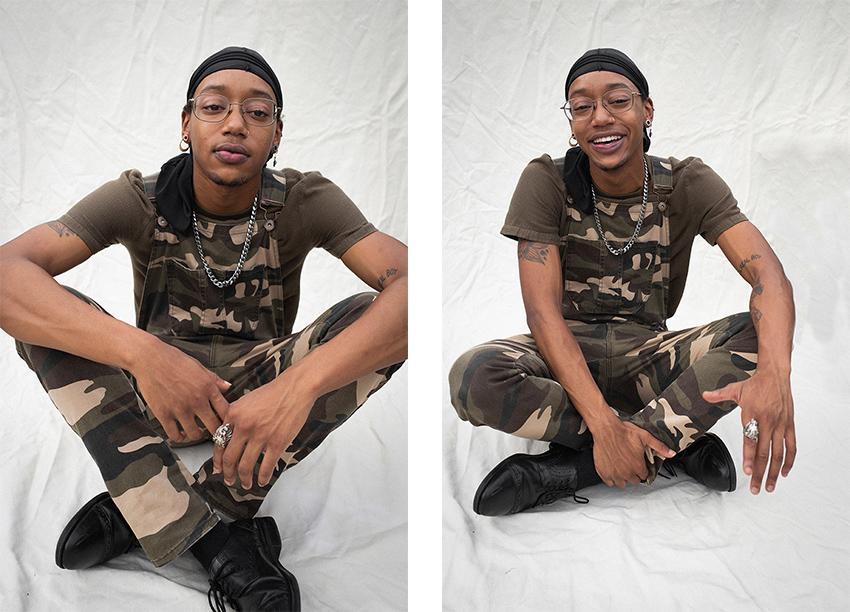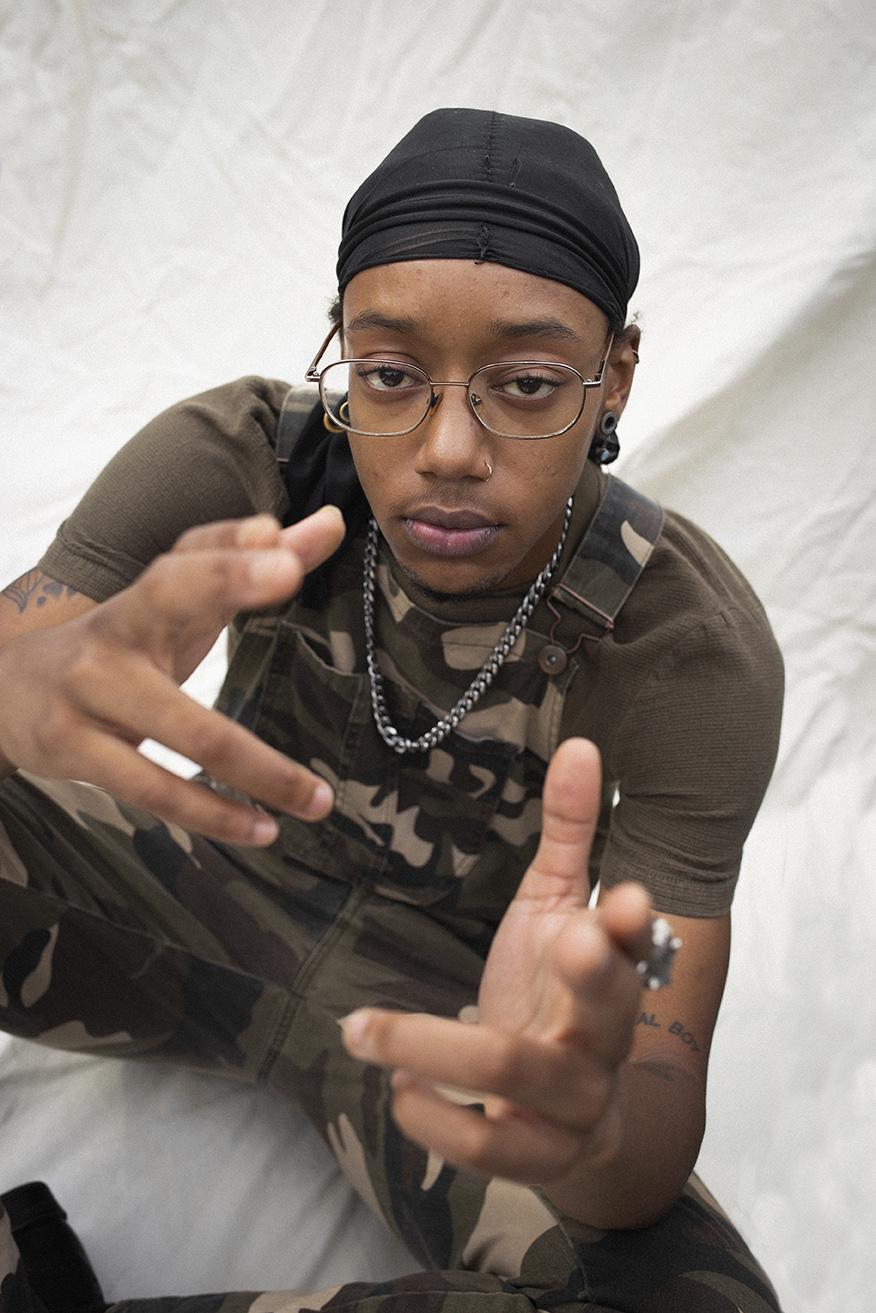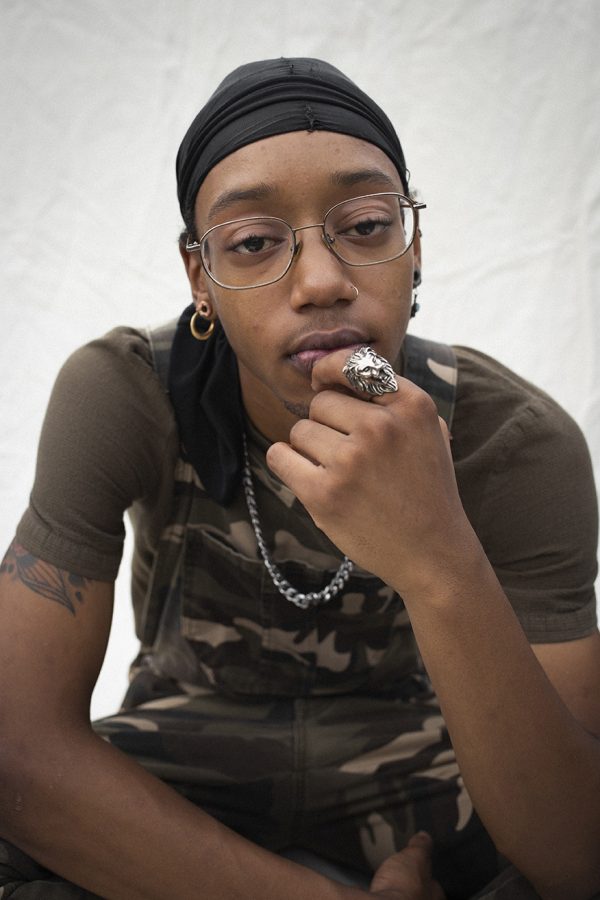Jesse Sgambati was drunk or stoned or both when his musical alter ego, Jesediah, was born.
In his first year at NYU’s Clive Davis Institute of Recorded Music, Sgambati was trapped in a dilemma all new artists must face: how to carefully select that most crucial piece of branding that can make or break a career. He needed a stage name.
He frequently bounced his ideas around with his managers, Jake Nanez and Alex Baranello, who are both Sgambati’s classmates at Clive. He considered simply “Jesse” and quickly rejected “Young Jez.” It was not until early in his sophomore year that the perfect name struck him. Sgambati was hanging out at Nanez’s apartment, delivering a characteristically boozy rant about the Clive administration. Nanez stopped him and asked what he was doing. The answer: “I’m preaching on these n-ggas.”
They soon came up with Jesediah, a name that is both commanding and perhaps ironically biblical.
“There’s no other artists with it,” Sgambati said. “I didn’t want to do anything that was like ‘Yung J’ or ‘Lil Backpack’ or some sh-t like that. To me, that ship had sailed.”

And while the 22-year-old Clive senior has a well-streamed Spotify repertoire of high tempo trap and pop-influenced sounds with recent breakout singles like “Factual” and “G.O.A.T,” he is in no way defined by the parameters of what his girlfriend lovingly refers to as “f-ckn-gga” music.
Sgambati was born in New Orleans but grew up in Syracuse, New York as the only adopted child of two gay men. Music and performance were centerpieces of Sgambati’s life growing up. He was enrolled in piano lessons when he was three and took dance lessons almost every day. He started to teach himself to play guitar when he was nine.
“I took like four lessons but it was moving too slow and I wasn’t trying to shred,” Sgambati said. “I just wanted to be able to write songs and be able to go around with my guitar and serenade people.”
He used to attend Old Songs Festival, where he found a love for folk music among the banjo and mandolin players crowding tents at the Fairgrounds in Altamont, New York. He began writing folk songs on the guitar, turning to his New Orleans roots for inspiration.
“I like looking at my home state and just understanding how much of bluegrass and folk came out of the South and came from African people,” Sgambati said. “I realized that was something I connected with and it had a lot to do with the storytelling. Folk music and hip-hop music are really the only things I listened to when I was younger because, to me, they were both about telling a story just in very different ways.”
But music isn’t all that has marked the young rapper’s life. From a young age, Jesediah’s gender identity shaped the enigma we hear and see on stage.
“When I was four, I asked my dad ‘when does my penis grow,’ and he was like ‘never, my guy, sorry to be the bearer of bad news.’ I was like, ‘well this doesn’t make any sense.’”
Sgambati came out as transgender in eighth grade and moved quickly through his transition thereafter with plenty of support from his dads. He began taking hormones within the year and had his top surgery during his senior year of high school.
“I think, to me, that was really important because I had figured it out at that point in my life, and I didn’t want to come to college where you’re already introducing yourself all over again and have to do that twice because I hadn’t felt secure in my transition at that point.”
Nearly five years later, Sgambati moves around his apartment with ease and a cigarette in hand, shirtless under a pair of camouflage overalls, confidently owning the scars from his top surgery. His left arm is tattooed with the words “real boy.”
“People still have jokes, but if you let other people be the reason you feel like a male then you’re never gonna feel like a male,” he said.

His switch from folk to hip-hop began in high school with Sgambati freestyle rapping on friends’ porches. During his junior year, his high school’s band room became the makeshift studio for his first song. Sgambati knew he wanted to pursue a hip-hop career in college and had his sights set on studying at Clive, but the first challenge was getting his foot in the door.
“When I applied to school, I applied as a folk musician because I figured I could finesse my way in. I knew they had three million black dudes who are like ‘I rap, I make [rhythm and blues],’ so I didn’t want to give them another stereotype,” Sgambati said, a grin emerging on his face. “I got to Clive and started making trap immediately. I was doing trap-trap when I first got here. Just songs about shooting people in the face and having fancy cars. Then I started making trap-pop.”
In addition to releasing singles, Sgambati has kept himself busy this year performing around New York City, most notably opening for Aaron Knight at S.O.B’s and Tinashe at Irving Plaza. He also filmed and released a music video for his song “G.O.A.T.”
Behind the scenes, Sgambati’s vision is made possible by a team of musicians who double as friends he’s met through Clive. His current manager, Giovanni Roca, started West 4th, a club that doubles as a record label his sophomore year and signed Sgambati as its first artist. Sgambati also met Benny Berger, one of the producers in a class at Clive their sophomore year, and the two instantly connected over their love for trap music.
With graduation around the corner in the spring and possible plans to try his hand in the Los Angeles music scene after, Sgambati is arming himself for a future in the music industry, with a new more elevated sound.
“I think picking apart my blackness has been important to the music I’m making because I used to just make generic trap music, and it wasn’t bad, but it wasn’t that great,” Sgambati said. “I feel like the stuff I’m doing now is a more full representation of myself. I’m trying to incorporate folk and piano. I’m producing my own stuff again so I can think about what I like.”
Sgambati has yet to find a sound he can truly call his own, but he has no plan of ending the search any time soon.
“Jez is not trying to ride waves by any means,” said Bradley Wastler, a producer and graphic designer for “Factual,” and the founder of WH9LE art collective, of which Sgambati is a member. “He makes music that is very current and up-to-date, but he’s very geared toward the future and looking toward long term success in the music industry.”
From a passing glance on Instagram or a shuffle through his Spotify, it looks and sounds like Jesediah has the clout, swagger and attitude to be expected of a rapper. Hidden behind his feed and his trap lyrics is Jesse Sgambati, a different man altogether.
“People always say the come up is hard. It’s hard to get more famous if you get stale,” Sgambati said. “There’s more room for mistakes at the lower levels, and I’ve changed my brand so many times because nobody is checking on me. But at that higher stage, you really have to be what people have expected of you to reach this point.”
Tyla Leach, Sgambati’s girlfriend of a month whom he met him on Instagram, spoke on Jesediah’s brands and how his ethos changes from performer to boyfriend.
“All his songs are like ‘Imma take your shortie, I’m gonna smash, me and your girl,’ but he’s really just a sweetheart, so I’m like ‘who is this on this song?’ Leach said. “I thought he was gonna be a f-ckboy, but that is not at all what happened.”
With a new single “Versailles” due to be released on Oct. 13 and many other upcoming tracks, which remain shrouded in secrecy, Jesediah has his sights set on making a lasting name for himself. But no matter how far his career takes him, Sgambati swears to never forget his beginnings.
“My friends would be like ‘I don’t know how I’m gonna eat, but I’m gonna buy this ticket to your show.’ That stuff I’m not gonna ever forget. At any level I just want to give back to who and what made me.”
A version of this article appeared in the Thursday, Oct. 11 Arts Issue on pages 6-7. Read more from the Arts Issue here. Email Ali Zimmerman at [email protected].


























































































































































